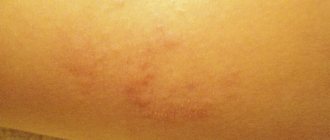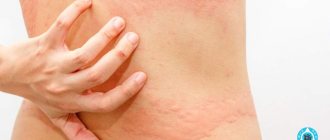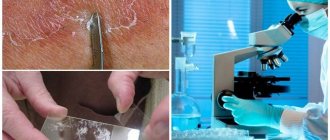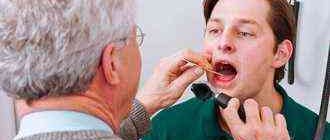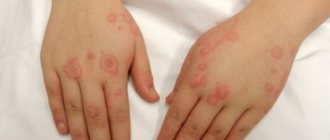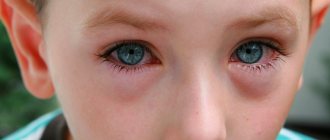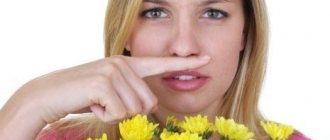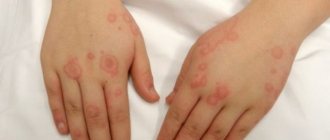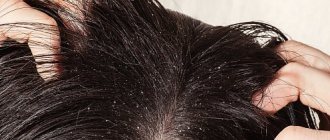Allergic itching of the palate: causes, manifestation, classification, treatment and prevention
» Articles about allergies » Allergic itching of the palate
The oral cavity is the initial section of the digestive tract. Therefore, along with the nasal mucosa, it is the first to come into contact with irritants penetrating from the outside. As a result of exposure to the latter, the palate may begin to burn and itch severely.
Let's try to figure out why this symptom occurs and what to do to get rid of it.
CAUSES OF ITCHING OF THE PALATE
The palate separates the oral cavity from the nasal cavity. In front it is formed by a bone septum, in the back - by soft tissue, which passes into the tongue and arches. It is necessary for the formation of the voice, the formation and pushing of food lumps.
An allergic reaction can cause irritation of the palate. The allergen, once on the mucous membranes, starts the pathological process. As a result, biological mediators begin to be released. They damage tissues and blood vessels, which can cause itching and burning.
Among the provocateurs of allergic itching of the palate are:
• toxic compounds that enter the body during breathing;
• toothpastes, dentures;
• breath freshening spray;
• chewing gum;
• house dust;
• pollen of flowering plants;
• Food.
Any of these factors can cause severe itching of the palate in an allergic person.
The following can also lead to discomfort:
• Burns;
• stomatitis;
• oral candidiasis;
• mechanical damage;
• pharyngitis.
HOW DOES THE ITCHING OF THE PALATE MANIFEST?
People talk about itching of the palate if they feel as if something is tickling the horizontal septum. The patient wants to cough. The palate itches constantly or from time to time.
Against this background, the following may occur:
• sore throat;
• non-productive cough;
• sneezing;
• increased lacrimation;
• runny nose.
In itself, itching of the palate due to allergies is harmless. But in medical practice there are cases when bronchospasm or anaphylactic shock began this way. Both of these conditions pose a threat to human life, as they often cause swelling of the throat and suffocation.
CLASSIFICATION OF ITCH
There is no specific classification of palatal itching. When making a diagnosis and selecting treatment, doctors usually take into account the factors that provoked the symptom. Thus, the following pathologies can cause discomfort in the upper palate:
• Fungal and bacterial infections. Then other signs join the tickling feeling: a gray coating, small ulcers in the mouth, bleeding mucous membranes.
• Angina. The patient complains of itching of the palate, enlarged tonsils, sore throat when swallowing, and high fever.
• Pulpitis, caries. Sometimes these dental diseases also cause a burning sensation in the mouth.
• Leukoplakia. Certain areas of the oral cavity become keratinized, causing unbearable itching.
• Mechanical damage to the palate from hard or rough food, foreign objects.
• Herpes. In parallel with the itching, papules filled with transparent contents form on the mucous membranes.
• Allergies. As a result of eating specific foods or direct contact with allergens, a person experiences itching. The soft tissues of the mouth may also become irritated.
ALLERGIC ITCH
The cause of itching of the palate during allergies is always allergens that enter the mucous membranes of the oral cavity from the outside. People prone to this disease have a reserve of specific antibodies in their bodies. They seem to be waiting for the allergens to attack again. As soon as this happens, they react with them. The consequence of this relationship is the emergence of special immune complexes.
Antibodies are fixed on the membranes of mast cells, and allergens bind to them and cause the release of mediators. They, in turn, are responsible for the clinical manifestations of an allergic reaction.
TREATMENT OF ALLERGIC DISEASES MANIFESTED BY ITCHING OF THE PALATE
In order for the treatment of itchy palate to be successful, it is important to identify the allergen that causes itching of the palate and avoid contact with it in the future.
Among medications for this symptom, the patient is usually prescribed antihistamines and antiallergic tablets. In severe cases, when there is a threat of swelling of the respiratory tract, they resort to the help of hormones.
In case of severe inflammation, apply compresses and applications with soothing ointments and solutions, and rinse.
"Erius"
The drug "Erius" helps to cope with 10 allergy symptoms, including relief from itching and burning of the palate:
- 1. Redness of the eyes
- 2. Nasal congestion
- 3. Watery eyes
- 4. Skin rash
- 5. Itchy eyes
- 6. Sneezing
- 7. Itchy nose
- 8. Itchy palate
- 9. Itchy skin
- 10. Nasal discharge
Its active ingredient is the active metabolite of loratadine - desloratadine. Once in the patient’s body, it does not allow histamine released from tissues to interact with receptors on target cells and, thus, blocks the development of an allergic reaction. In addition, desloratadine prevents the release of interleukins, which trigger the pathological inflammatory process.
Taking “Erius” is convenient - it is enough to take 1 tablet of the drug “Erius” per day.
PREVENTION
In order to prevent the appearance of allergic itching of the palate, it is necessary to avoid contact with allergens, strictly follow the recommendations of an immunologist-allergist, and lead a healthy lifestyle. It is also important to use only high-quality toothpastes and promptly treat dental diseases of the oral cavity.
L.RU.MKT.CC.03.2018.2208
Source: https://www.aerius.pro/stati/allergicheskij-zud-neba/
What diseases are accompanied by itching of the palate?
Itching in the mouth occurs against the background of a number of inflammatory diseases; other symptoms come to the fore: the formation of ulcers, the appearance of plaque, an unpleasant odor, a burning sensation and pain. The infectious process of the palate of the mouth is complex and can be associated with the following ailments:
- Stomatitis , in which, in addition to itching in the palate, patients complain of the appearance of ulcers, pain and the inability to eat. The disease occurs as a result of infection of the mucous membranes of the oral cavity by pathogenic or conditionally pathogenic microorganisms against the background of weakened immunity.
- Dental diseases . Advanced forms of gingivitis and pulpitis can cause infection to spread to the upper parts of the oral cavity.
- Sore throat , the main symptoms of which are sore throat, swelling and redness of the tonsils, the appearance of plaque and general intoxication.
- Candidiasis or damage to the surface epithelium by fungi of the genus Candida. In addition to itching, the disease is characterized by white cheesy deposits, swelling and redness of the mucous membranes.
- Herpes . Viral inflammation, which is accompanied by intense itching and the appearance of blisters with a serous secretion on a reddened base.
Closer view of the oral cavity
The palate itches not only with specific infectious lesions of the mucous membranes. The reasons for this phenomenon may be hidden under the guise of other diseases, including:
- Allergy. An allergic reaction on the palate can be caused by a number of factors, most often food allergens, personal hygiene products, and medications.
- Systemic ailments with autoimmune inflammation of the oral mucosa;
- Tumor processes and consequences of chemotherapy.
Neuralgia, when the temporomandibular nerve bundle is affected, which serves as an impetus for the development of aseptic inflammation, in which the palate may itch.
Why your mouth itches: to get rid of an unpleasant symptom, find its cause
Itchy mouth? This is a common and sometimes alarming symptom that many people experience. Itching can be caused by viral or fungal infections, as well as allergies to food, pollen, latex, medications and other substances. If itching in the mouth is caused by an allergic reaction, it is often one of the manifestations of oral allergy syndrome.
Associated symptoms
Depending on the cause, itchy mouth may be accompanied by other symptoms:
- burning or tingling sensation in the mouth, throat, or tongue;
- swelling of the tongue, lips, or throat;
- itching or tickling sensations in one or both ears;
- runny nose;
- sneezing;
- dry cough,
- lacrimation.
While mouth itching may remain mild and never progress beyond the mouth/head, it can also indicate a dangerous allergic reaction.
What could be causing the itching?
There are several reasons why your mouth, throat, or lips may itch. So, if you have itching in your mouth and throat, the reasons may be:
If your mouth or lips itch, it could be due to herpes, oral thrush, or a mild food allergy.
If your mouth itches after eating, the reason may be:
Let's look at the most significant reasons.
Allergy
So, an itchy mouth can be caused by an allergy to a certain food or pollen. Oral allergy syndrome, also known as pollen-fruit syndrome, is likely.
It usually begins during adolescence and adulthood. Oral allergy syndrome can occur even when you eat foods that you previously consumed without problems.
Oral allergies are the most common type of food allergy. It appears as:
- itching and tingling in the mouth, tongue and throat;
- swelling in and around the mouth;
- unusual taste in the mouth;
- itching of the ears.
These symptoms are usually mild and do not last more than 20 minutes. But sometimes they can develop into a more dangerous anaphylactic reaction, which is already an emergency.
Oral allergy syndrome is thought to occur when certain proteins in a food are similar to allergenic proteins found in the pollen of certain plants - wormwood, birch, grasses or ragweed.
In people suffering from seasonal allergies, oral syndrome may occur after eating certain raw fruits or vegetables, nuts, and spices. This is called cross-reactivity: the human immune system reacts to the similarities between protein compounds in pollen and food.
Herpetic infections
If you are prone to contracting the herpes virus, you may also experience itchy mouth. Many people experience itching and tingling around the lips before the sores appear.
Cold sores begin as fluid-filled blisters that form on the outside of the mouth, cheeks, and nose. They are usually small, but often cluster nearby.
The blisters burst, crust over and form sores that can remain on the skin for up to two weeks. Caused by the herpes simplex virus, ulcers are highly contagious.
Anaphylaxis
An anaphylactic reaction is a dangerous manifestation of an allergy that requires immediate medical attention. Anaphylaxis caused by an allergen may begin with an itchy, tingling, or swollen mouth.
Common causes of anaphylaxis are allergies to:
- poison of bees, wasps or other insects;
- medicines;
- Food;
- latex.
In general, people with allergies in the initial stages experience only mild or moderate symptoms: runny nose, rash, hives,
lacrimation, mild itching and tingling.
However, a mild allergic reaction can develop into anaphylaxis. This occurs when the body's response to an allergen goes into shock.
Symptoms of anaphylaxis include:
- edema;
- hives;
- feeling of squeezing in the throat;
- labored breathing;
- hoarseness;
- abdominal pain;
- nausea;
- vomiting;
- diarrhea;
- low blood pressure;
- fainting;
- dizziness
- cardiopalmus;
- fear of death.
In some people, anaphylaxis leads to cardiac arrest and death.
If you have a severe allergic reaction, call an ambulance immediately. Severe reactions can develop into life-threatening anaphylactic shock.
Yeast infection
If your mouth itches regularly, the likely cause is a yeast infection, otherwise known as oral thrush. This is a fungal infection caused by the rapid growth of Candida albicans
in the tissues of the mouth. Thrush spots may appear on the tongue, inner cheeks, tonsils, gums, or upper jaw.
Symptoms of oral thrush:
- dry mouth;
- burning or pain in the abdomen;
- redness of the oral mucosa;
- bleeding of the oral mucosa;
- cracked skin on the outside of the mouth, often at the corners;
- decreased sense of taste.
Children, the elderly, and those with weakened immune systems are most vulnerable to oral thrush.
Treatment methods
Since itching in the mouth is only a symptom, its cause must be treated.
Allergic reactions
For mild allergic reactions, symptoms usually go away within a few minutes as you spit out the allergenic food, get rid of the allergen, or digest the problematic proteins.
Sometimes you may need an antihistamine to combat mild symptoms. It is best that after consultation, a doctor selects it for you.
Severe allergic reactions can be treated with antihistamines, and in cases of anaphylaxis, adrenaline (epinephrine) can be used.
People with a history of allergic reactions should always carry an epinephrine pump with them to stop or prevent anaphylaxis in an emergency.
If you have a severe allergic reaction, seek emergency medical help immediately, even if you have already used epinephrine yourself.
Herpes
Herpes infection can be treated topically or with oral medications. In some cases, your doctor may recommend antiviral injections to combat the herpes simplex virus.
Typical antiviral drugs for herpes:
- penciclovir;
- acyclovir;
- famciclovir;
- valacyclovir.
Is it possible to prevent itchy mouth?
Here are some tips to help prevent itchy mouth:
- Follow all your doctor's instructions regarding the treatment of herpes and oral thrush.
- Avoid allergens, including food ones.
- Clean fruits and vegetables, cook them rather than eat them raw.
- Avoid medications that may cause allergies.
When to see a doctor
If you suspect you have oral thrush or herpes, make an appointment with your doctor.
It is also important to see a specialist if you have an allergic reaction to a food or other specific allergen: an allergist will conduct tests to identify the allergens and choose a strategy to avoid them. He may prescribe epinephrine for emergency situations and make recommendations for further treatment.
conclusions
While an itchy mouth may be caused by easy-to-treat conditions, it can also be a symptom of dangerous allergic reactions in the future.
If you feel that your mouth is itchy, be sure to consult a doctor.
Having received the correct diagnosis and recommendations from a doctor, you can cure your unpleasant condition or get emergency help if you need it.
Source: https://allergy.org.ua/ru/pochemu-zudyt-vo-rtu-chtoby-yzbavytsia-ot-nepryiatnoho-symptoma-naidyte-eho-prychynu/
Why the roof of your mouth itches: causes, symptoms and treatment methods
When itching appears in the mouth, the first thing a person thinks about is allergic reactions or symptoms of some disease. However, irritation often occurs for no apparent reason. There are folk signs that explain the meaning of this phenomenon. Interpretations vary depending on which area of the mouth itches - the palate, gums or throat.
What is the palate?
The palate is the upper part of the oral cavity. This is the septum that separates the nasopharynx and mouth. Next, the vault of the oral cavity passes into the larynx. The palate is divided into two sections: hard and soft.
Structure of the oral cavity
The main function of the palate is to protect the nasopharynx from foreign objects, such as food particles. It also allows you to set the correct direction for the air flow during breathing.
The palate plays an important role in ventilation of the middle ear. It allows you to adjust the internal and external pressure on the membranes, acting as a kind of tuning fork. Also, the palate, in combination with the larynx, is responsible for the timbre of the voice and its pitch. In various languages of the world, this organ helps to form unique sounds.
Interesting! When making the sound “R,” speech therapists teach children to place their tongue on the roof of their mouth.
The sky is one of the most important parts of the apparatus
Therapeutic measures – complex treatment
If the palate is damaged due to drinking cold juice or hot tea, then treatment with the help of folk advice is applicable. Natural remedies heal wounds and injuries. If you use propolis or sea buckthorn oil, you can not only relieve inflammation, but also heal the wound.
By rinsing with decoctions of oak, chamomile, and sage bark, you can relieve inflammation and itching. To obtain the effect, it is necessary to combine traditional methods and medications prescribed by the doctor.
In order to get rid of an annoying symptom once and for all, you first need to identify its root cause, and it is this that needs to be treated. Medications may be prescribed as symptomatic therapy. Typically, complex treatment involves taking antihistamines, antipsychotics, immunostimulants and anti-inflammatory drugs.
Only a specialist can prescribe the correct treatment
wheat germ, rose hips, sea buckthorn oil and others. In this regard, rinsing with a soda solution has worked well - one tablespoon per glass of water. However, it should be understood here that the use of any traditional medicine must first be agreed with the attending physician.
Diagnosis of the disease
Since itching of the palate accompanies many diseases, only a specialist can make a correct diagnosis after diagnosis. If the symptoms are not clearly expressed, there may be a slight inflammation, which can be cured by the immune system. But since almost all diseases entail complications, sometimes very serious, you need to seek medical help.
To determine the pathology, you need to consult a doctor
It is possible to identify symptoms that unite all diseases that cause itching of the palate:
- pain, tingling of the mucous membrane;
- redness of the throat;
- ulcers on the oral mucosa;
- sore throat;
- swelling of the mucous membrane;
- increased body temperature in some cases.
Most often, itching of the palate is accompanied by swelling of the mucous membrane, redness of the throat, soreness, and mouth ulcers.
You can conduct a preliminary self-examination before going to the doctor. This will help to more accurately formulate the symptoms and make the task easier for the specialist:
- ENT diseases are accompanied by pain and swelling of the throat, increased salivation, swollen lymph nodes, and fever;
- mechanical damage and burns are accompanied by pain, redness, and damage to the mucous membrane;
- with neuralgia, neurological symptoms develop;
- candidiasis and herpes cause a rash, redness of the mucous membrane, and increased body temperature;
- allergies are manifested by allergic symptoms;
- stomatitis causes ulcers on the surface of the mucous membrane, bad breath, excessive salivation and high fever.
You can do a preliminary oral self-examination
There are a number of signs that indicate the need for urgent medical attention:
- active manifestation on the skin (abscess, profuse rash, necrotic phenomena);
- body temperature at 40 degrees;
- feverish condition.
Important! If even the slightest sign of any disease appears in a child, you should immediately consult a doctor. Often this is a sign of the onset of stomatitis, and the sooner you start treatment, the more effective and easier it will be.
If you notice various manifestations on the skin, you should immediately consult a doctor.
Of course, in some cases the patient manages to independently eliminate all the unpleasant symptoms, such as tickling of the pharynx, sore throat, burning and itching of the palate.
Such actions are not encouraged by official medicine, but they have a reason: it is stupid to seek medical help for a minor allergic reaction.
In such a situation, it is recommended to eliminate all allergens from consumption, take antihistamines, and use soothing compresses.
Source: https://PlastikaPlus.ru/rot/cheshetsya-nebo-vo-rtu.html
Traditional ways to combat itching in the mouth
Often, homemade solutions are used to relieve discomfort.
- With soda. Dissolve a teaspoon of soda in a glass of warm boiled water. Use once, prepare a fresh solution for new use.
- With sage. Brew a tablespoon of sage with a glass of boiling water, cover with a lid and leave for half an hour in a dark place. Rinse your mouth thoroughly with the cooled infusion throughout the day.
- With celandine. The herb plant is poured with boiled water and simmered in a water bath for 15 minutes. The prepared liquid is filtered and, after cooling completely, used as a mouth rinse.
Green tea, echinacea, fennel, chamomile and calendula have a mild antipruritic effect. The use of teas made from them can help relieve discomfort for patients. They are prepared in the standard way: one dessert spoon of the herb (or a packaged bag) is brewed in 200 ml of boiling water and drunk warm at any time of the day.
Before using herbal remedies, you should consult your doctor. Since, for example, the use of ointments based on honey or propolis in the treatment of oral diseases can increase itching and provoke allergies in sensitive patients. And we must remember that in most cases, folk remedies only alleviate symptoms, but do not cure the disease.
Itching of the palate: what to do if your mouth itches?
The mouth and larynx are an excellent breeding ground for harmful or, as doctors say, pathogenic microflora.
And, as you know, the mucous tissues of the mouth are not very capable of preventing the penetration of microbes into them, as well as into the lymphatic and salivary glands, gums, even affecting the teeth.
The upper palate is no exception for damage to inflammatory processes caused by infection. And first of all, this manifests itself in itching and only then do symptoms such as redness, swelling, along with pain and discomfort appear.
Before moving on to the causes of itching of the palate, you need to understand its structure and purpose.
Palate: its structure and purpose
The palate is the vault of the oral cavity or a kind of septum that separates it from a section called the nasopharynx. In the depths of the mouth, the palate gradually turns into the larynx. There are two sections of the palate - its soft and hard sections.
As for the soft part, it is represented mainly by muscle fibers and connective tissue, and it is located deep in the oral cavity. Whereas the hard part of the palate is bone tissue that also belongs to the upper jaw.
The role of the palate is difficult to overestimate, since when consuming food and drinks, it prevents them from entering the nasopharynx. In addition, it directs air during breathing to the corresponding part of the larynx and participates in the process of ventilation of the middle ear.
That is why artillerymen, to prevent their eardrums from bursting, open their mouths when firing, thus equalizing the pressure both outside and inside the eardrums.
The palate, together with the receptors located on it, as well as the larynx, is responsible for the timbre and pitch of a person’s voice. It is widely used in the pronunciation of certain sounds in many languages of the world.
Why might the upper palate itch?
Discomfort in the upper palate indicates the development of various pathologies:
- in the form of infections, both fungal and bacterial infections. This can manifest itself in a gray coating, redness, the appearance of ulcers, burning and pain. A common cause of this pathology in childhood may be stomatitis;
- in the form of a sore throat. This pathology is diagnosed if, in addition to itching, its obvious signs appear, such as enlarged tonsils, sore throat, and aches throughout the body;
- in the form of dental problems and pathologies such as pulpitis or caries;
- in case of unsuccessful removal of the dental nerve of the temporomandibular region, which was the cause of the inflammatory process;
- with the development of a disease such as leukoplakia, which is a consequence of chronic injuries to mucous tissues from both hard and cold and hot food;
- when receiving various injuries while chewing food, when proper oral hygiene is insufficient or completely absent;
- with candidiasis or oral thrush. The most common disease in infants, but can also occur in adults. The cause of this disease is yeast fungi, which cause redness of the palate and the entire oral cavity, and then curdled plaques with ulcers located under them appear;
- with herpes. The herpes virus often affects not only the inner parts of the lips or cheeks, but also the palate;
- for allergic reactions. When consuming allergenic food or drinks, the oral mucosa reacts most quickly - in the form of soft tissue swelling, the palate itches, becomes numb, and pain appears.
If the roof of your mouth itches, what should you do?
Without fear of seeming unoriginal, as with any disease, the recommendation in this case is the same and unchanged - you should immediately consult a doctor. It is the doctor who will determine the true reasons why the palate began to itch and choose the most effective treatment tactics.
For a general understanding of how a doctor determines the causes of itching, you need to understand that usually this symptom is concomitant and not the main one. Therefore, to eliminate the main cause of the pathology, a complex of therapeutic measures and procedures is required.
First, the doctor determines the nature of the emerging inflammatory process. By interviewing the patient, he identifies the so-called “obvious” reasons that appeared as a result of random or one-time events due to the fault of the person himself.
If the cause of itching is a cold, hot or chemical burn, as well as mechanical injury, local treatment is prescribed using rinses (healing and regenerating), as well as compresses, ointments and applications. In this case, during the treatment process, a diet is prescribed with the consumption of only neutral food and drinks.
If itching is an allergic reaction, then abstinence from eating and drinking is prescribed for a while with the active use of oral antihistamines, applications and compresses are prescribed. Over time, it is allowed to consume pureed food and neutral drinks.
The rapid elimination of itching, redness, and tissue healing are facilitated by rinsing with a solution of soda and salt, a weak manganese solution, furatsilin and various herbal decoctions, for example, based on chamomile, calendula, oak bark, as well as sage, linden, eucalyptus and other various herbs. More details about them are described in the article “Remedies for treating itching.”
With all treatment methods, oral hygiene is temporarily limited and the patient is required to quit smoking.
(1 5,00 of 5) Loading...
Source: https://ZudMed.ru/zud-golova/zud-nyoba-prichiny-i-chto-predprinyat.html
The palate itches in my mouth: there is no reason to be angry
The oral cavity, including the roof of the mouth, is a breeding ground for bacteria and other pathogens.
The oral mucosa, according to doctors, is not able to effectively prevent the proliferation of microbes. When they spread, severe itching or redness appears on the surface of the palate. At this time, discomfort is felt, including pain, especially during eating.
The upper part of the oral cavity, which is the palate, is a kind of partition that separates the nasopharynx from the oral cavity. There are two palatal parts: hard and soft.
When examining the hard part, there is bone tissue that belongs to the jaw located on top. Soft tissue is formed from muscle fibers, as well as connective tissues (they are located deeper).
The palate is involved in ventilation processes associated with the functioning of the middle ear. There is a kind of equalization of pressure from the outer part and the inner part (a kind of protection of the membranes). The function of the palate and larynx is responsible for the color of the voice, including its timbre.
We explore the reasons
There are several main reasons why the roof of your mouth itches.
Stomatitis
A dental disease that manifests itself in the form of ulcerative, catarrhal, aphthous and necrotic lesions of the oral mucosa. Each type of stomatitis is manifested by a peculiar itching, ulcers and plaque. Symptoms appear when a person’s immunity is weakened and cracks appear in the soft palate.
Pathologies of ENT organs, including the throat and tonsils. Redness and inflammation of the mucous membrane appear (development of laryngitis, tonsillitis, sore throat or flu).
Mechanical injuries
Damage can occur from hard, piercing foods, or from improper use of household items, including forks, toothpaste, and dental floss. Injuries occur from bruises, falls or fractures.
After eating hot food, itching may occur, and later the surface begins to itch. As for chemical burns, they appear due to the action of acids, tablets and products.
Neuralgia
After stress, irritation may appear on the mucous membrane over time. After a while, itching, a characteristic plaque, and also a tint appear.
The upper part of the oral cavity itches during pulpitis, gingivitis, deep caries, periodontitis, and periodontal disease.
Candidiasis
Also called thrush, a type of fungal infection. This disease most often develops in infants.
Herpes
A viral disease with a rash of grouped blisters on the mucous membranes and skin. More often this pathology is detected at an older age. May develop on the lips, cheeks and palate. There is itching and a peculiar pain sensation.
Allergy
The palate sometimes feels sore and itchy due to allergies. When histamine enters the mucous membrane of the palate, the body’s response is triggered. It all starts with ticklish sensations, and as a result, additional symptoms may occur, which manifest themselves in the form of:
- cough;
- soreness;
- nasopharyngeal congestion;
- involuntary release of tears.
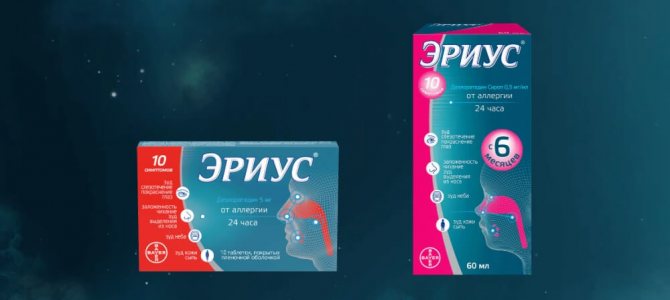
It happens that scratching in the palate is accompanied by the appearance of a rash on the cheeks and neck. In advanced situations, swelling may occur.
An allergic reaction is often accompanied by sneezing. Often appears in patients suffering from food or seasonal allergies.
If itching, discomfort and tingling occur with mild pain, then there is a high probability that these are manifestations of traumatic damage to the palate.
If the itching is accompanied by the appearance of a yellowish coating, the patient may have a liver problem. Associated symptoms are white ulcers on the surface of the palate or tongue - these are symptoms of fungal development.
Most often accompanying symptoms are:
- pain in the larynx;
- redness in the throat;
- sore throat;
- the appearance of swelling;
- feverish condition;
- enlarged lymph nodes;
- the occurrence of increased salivation.
If you notice severe redness, fever and sore throat, it could be a sore throat.
We provide treatment
When you notice the first symptoms of pathology, it is important to consult a doctor. He will explain what to do if the palate area itches.
At the very beginning, symptomatic therapy is prescribed. Anti-inflammatory drugs are more often prescribed. After this, a course of basic therapy occurs.
The most effective antiseptics in the treatment of itching of the palate are Lidochlor (available in gel form) and Cholisal. Kalgel and Kamistad have proven themselves to be quite good.
For rinsing, solutions of Chlorhexidine, Chlorophyllipt, Furacilin, Rotokan are used.
Thrush
Antifungal drugs in the form of tablets and ointments are used against thrush:
- Nystatin ointment;
- Clotrimazole;
- Mikozan.
Drugs for oral use are prescribed against this viral disease, for example:
- Zovirax;
- Gerpevir;
- Acyclovir.
The dentist performs sanitation of the mouth. If necessary, wounds are treated with appropriate medications. The teeth are examined (if problems are found, a filling is done). The gums and their pockets are examined for the presence of purulent formations. Treatment is prescribed depending on the problem.
Treated with antihistamines. Depending on your symptoms, doctors may prescribe special allergy sprays.
It is important to take proper care of your oral cavity. The following rules must be observed:
- conduct preventive examinations at dentists;
- Rinse your mouth more often to improve your health;
- maintain daily hygiene in the inside of the mouth;
- Use the brush with caution when brushing your teeth;
- carry out activities that strengthen the immune system;
- control the consumption and temperature of hot drinks and food.
To always feel fresh and comfortable in your mouth, you need to carefully monitor your hygiene and your health.
Many people are concerned about why the roof of the mouth itches? The palate is an important part of the oral cavity, without which it is impossible to produce speech or chew food.
Various harmful microorganisms can accumulate in the mouth, which can provoke the development of an inflammatory process of the mucous membrane, swelling and numbness. In some cases, the palate may itch. Under such conditions, it is imperative to visit a doctor.
This will help prevent the development of serious diseases. At the initial stage of pathology development, treatment is carried out faster and more effectively.
Why does the roof of my mouth itch? Among the most common reasons are the following:
- infectious diseases;
- inflammatory process of the mucous membrane;
- failure to comply with basic hygiene rules;
- injury;
- dental disease;
- sore throat;
- removed nerves;
- severe allergies;
- pemphigus;
- tumor diseases;
- insufficient amount of useful elements in the body;
- nervous experiences;
- eating food that is too hot or cold.
Many people are concerned about why the roof of the mouth itches? As medical practice shows, there are a huge number of factors under the influence of which an unpleasant symptom can occur. Only after a thorough medical examination can a doctor make a diagnosis.
Quite often, the oral cavity becomes infected with ordinary or fungal microorganisms. As the disease develops, the infection provokes the appearance of ulcers, plaque, and redness.
As a result, the patient experiences discomfort and burning sensation. In frequent cases, a person cannot eat food without pain.
Why does the roof of your mouth itch? Sometimes inflammatory processes in the oral cavity develop for the following reasons:
- The appearance of candidiasis. It most often occurs in newborns, but can also occur in adults. The disease develops due to disturbances in the functioning of the immune system.
- During the period of exacerbation of a chronic disease.
- After taking a hormonal, antibacterial, cytostatic drug, the roof of the mouth often itches. The reason may be that some drugs cause side effects.
- With a lack of nutrients, a burning sensation and itching occurs in the mouth.
- Pemphigus often causes itching on the palate and is accompanied by the appearance of blisters. In frequent cases, a burst bladder causes severe discomfort and does not heal for a long time.
- Toothpastes and rinses sometimes cause an allergic reaction.
- Stomatitis provokes the appearance of itching and ulcers. Redness and irritation may also occur. Most often it appears during a period of weakening of the body’s protective function.
- Mechanical injury.
- A dislocation or fracture often provokes inflammation in the palate.
- An incorrectly placed prosthesis, implant, brace or filling often provokes unpleasant sensations in the mouth.
Why does the roof of my mouth itch? In the process of eating hot food, a burn may occur, which provokes a burning sensation, itching and scratching. When many infectious diseases occur, dry mouth may occur.
If discomfort persists for a long time, you should immediately consult a doctor and undergo a thorough medical examination. Based on the results of the study, the attending physician will prescribe effective therapy.
Timely treatment will help prevent the occurrence of consequences. The following symptoms are cause for concern:
- Mild soreness and tingling. With a fungal disease, white ulcers always form.
- Sore throat provokes pain, as a result of which the palate turns red and an increased body temperature is observed.
If one of the symptoms appears, it is important to consult a doctor and undergo a medical examination.
The palate in the mouth itches - what to do about this? Depending on the identified pathology that provoked the occurrence of unpleasant sensations in the throat, the specialist prescribes therapeutic measures. For minor damage, it is not necessary to treat with medication. You can eliminate unpleasant sensations with the help of medicinal herbs, namely a decoction of calendula and chamomile.
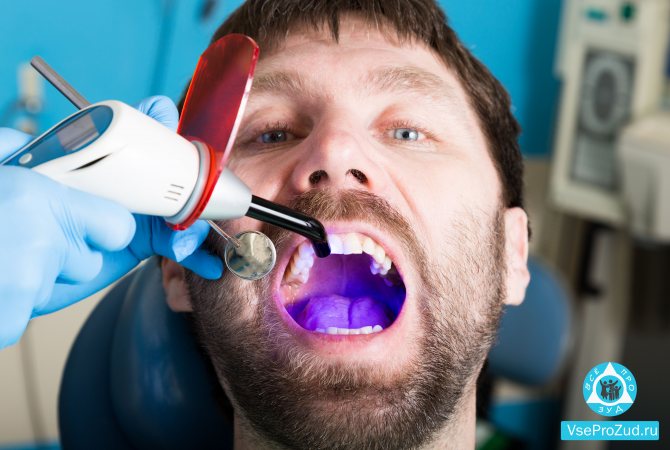
Why does the roof of my mouth itch? The cause can only be determined by a doctor after examination. Based on the test results, the doctor may prescribe treatment with a folk remedy.
Experts do not recommend rinsing the mouth with hot broth, as it can cause inflammation of the mucous membrane. Oak bark will help eliminate swelling and suppuration.
The palate in the mouth itches - causes and ears - About itching - Healthy Mouth
Itchy mouth? This is a common and sometimes alarming symptom that many people experience. Itching can be caused by viral or fungal infections, as well as allergies to food, pollen, latex, medications and other substances. If itching in the mouth is caused by an allergic reaction, it is often one of the manifestations of oral allergy syndrome.
Itching of the palate: what to do if your mouth itches?
The mouth and larynx are an excellent breeding ground for harmful or, as doctors say, pathogenic microflora.
And, as you know, the mucous tissues of the mouth are not very capable of preventing the penetration of microbes into them, as well as into the lymphatic and salivary glands, gums, even affecting the teeth.
The upper palate is no exception for damage to inflammatory processes caused by infection.
And first of all, this manifests itself in itching and only then do symptoms such as redness, swelling, along with pain and discomfort appear. Before moving on to the causes of itching of the palate, you need to understand its structure and purpose.

